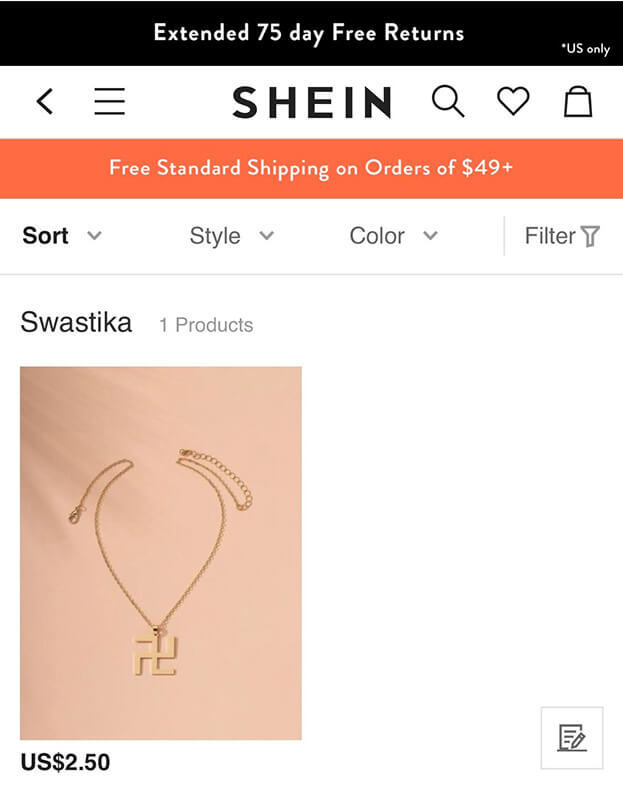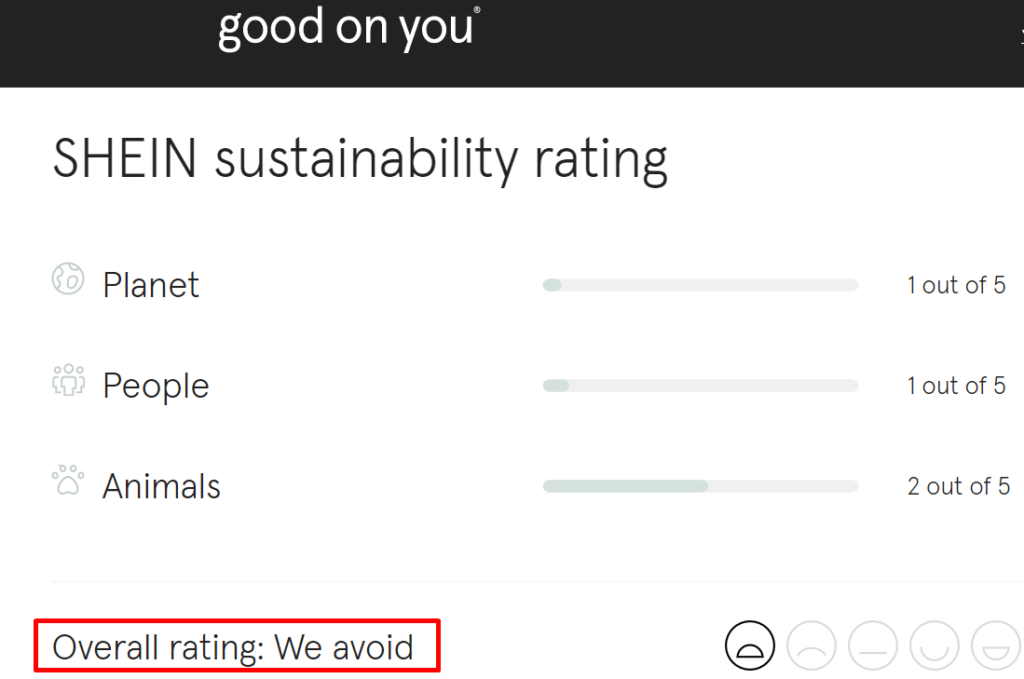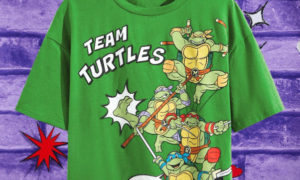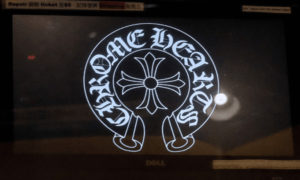Shein is BIG. It is arguably the biggest fashion brand of the moment with its new $100 billion dollar valuation which now makes it worth more than H&M and Zara combined.
The China-based fast fashion giant has become a popular hub to snag incredibly cheap deals on trendy clothing. The nature of Shein as a fast fashion brand has made it the focus of several controversies that range from ethical to environmental.
Here’s a comprehensive list of all the controversies Shein has been involved in thus far:
Stealing Designs
The controversy surrounding stolen designs is not unheard of when it comes to Shein. The Chinese retailer has been accused of ripping off small artists and designers on numerous occasions.
Most recently, a TikTok artist named Janie with the username @berrycutestudio claimed that Shein ripped off her sticker design. In a viral TikTok posted in March 2022, Janie does a side-by-side comparison of her sticker design to the ones being sold on Shein’s website. The identical stickers feature Janie’s character, a strawberry cow named Bella. On Janie’s website, a sticker sells for $3.50; meanwhile, Shein was selling 44 stickers for $1.
The sticker listing was eventually removed from Shein’s website; however, Janie is still waiting to “receive a proper response from them.”
@berrycutestudio Give small artists a break shein🐮🍓 #shein #stolenart #arttheft#stolendesigns #smallartist
Another instance of the retailer allegedly stealing art involves artist Vanessa Bowman. Bowman is an oil painter who draws inspiration from her Dorset village in South West England.
Bowman received the news about her art in an email from a Canadian fan. The fan asked if the artist was collaborating with Shein. To her horror, the photo attached to the email shows Bowman’s art plastered on a sweater going for £17 or about $22.16 on Shein’s site.
Bowman felt like the retailer used her art on their product without bothering to reach out to her. “The things I paint are my garden and my little village: it’s my life,” she told The Guardian. “And they’ve just taken my world to China and whacked it on an acrylic jumper.”
The Swastika Necklace
As if stealing designs isn’t bad enough, Shein caught backlash in 2020 for selling a “metal swastika pendant necklace.” In July 2020, an Instagram account @hereforthetea posted screenshots of the necklace on Shein’s website. The caption under the IG post read, “Shein, a company that’s become popular for YouTube ‘try on hauls,’ appears to be selling swastika necklaces?!!! I am disgusted.”

The post sparked backlash from several social media users, some even calling for a boycott of the fast-fashion retailer. The brand issued a statement that said, “We made a gigantic mistake by selling a product that’s hurtful and offensive to many of you, and we’re so, so sorry.”
Shein claimed the necklace was “a Buddhist swastika necklace.” In Buddhism, the symbol represents good fortune; meanwhile, the Nazi swastika promotes Adolf Hitler’s National Socialist German Workers’ Party and looks slightly different.
Shein profusely apologized in their statement and claimed they would end sales of religious items on their site.
Poor Labor Conditions
Shein’s clothes are affordable. They’re affordable because they are the result of cheap labor. Cheap labor falls under the umbrella of poor labor conditions, an issue Shein is all too familiar with. Shein’s Code of Conduct regarding its suppliers states that Shein’s partners may not use any kind of forced labor, hire minors under 16 years of age, discriminate or harass employees and must arrange working hours that comply with local laws and regulations.
A 2021 report by the Swiss advocacy group Public Eye, found that numerous employees were working 75 hours, which already violates local Chinese labor laws. Public Eye’s researchers spoke with 10 workers across six sites. The researchers discovered that these workers logged three shifts per day with only one day off per month. Most of these workers are paid per item. One worker explained that the wage per item of clothing was relatively lower compared to other places he had worked.
Fast-fashion may be fast and reliable, but the next time you see a $4.00 top, think about where that money is going.
Negative Effects On the Environment
Just like any other fast-fashion brand, Shein finds itself at the center of controversy regarding its effects on the environment.
According to The Guardian, Shein produces about 10,000 new garments a day. The ability to quickly turn out products perpetuates a need to stay on top of trends, thus creating a throwaway culture. It’s an issue exacerbated by Shein hauls worth hundreds of dollars. Shein ships to 250 countries, all by plane, which highly contributes to the brand’s environmental footprint. Thinking of returning your purchase? It’s most likely going to end up in a landfill because it cuts the cost of putting them back into circulation.
Moreover, Shein clothes were found to contain toxic chemicals. In October 2021, CBC News’ Marketplace published an investigation where researchers found “elevated” and “concerning” levels of lead, PFAS and phthalates.

directory.goodonyou.eco
When it comes to Shein’s sustainability, or lack thereof, apps like Good On You, provides users with an easy-to-read score for a fashion brand based on its ethics. Good On You rated Shein its lowest “We Avoid” score, which should be enough to avoid the brand altogether.





